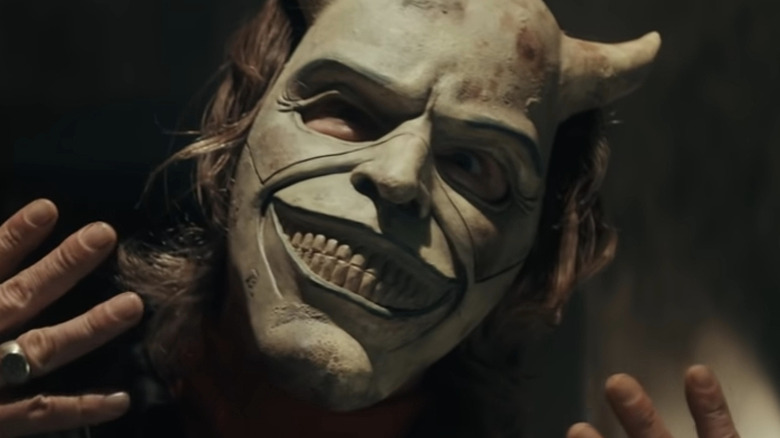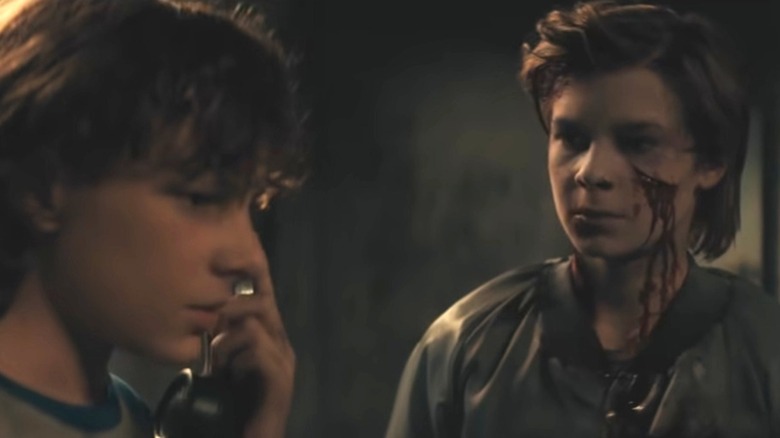The Black Phone Scenes That Were More Real Than You Thought
Fans of Scott Derrickson may have been disappointed to learn that he wasn't paying Doctor Strange a second visit in the MCU, but he still kept them on the line after shifting his focus to the genre that blew up his career and picking up "The Black Phone." Co-written by C. Robert Cargill and adapted from Joe Hill's short story, the film follows an abducted young boy, Finney (Mason Thames), who fights desperately to escape after being snatched by a child killer nicknamed The Grabber (Ethan Hawke). Thankfully, he's not alone, as, by way of a disconnected phone hanging in his basement prison, his captor's previous victims are calling Finney from beyond the grave to get him off the hook.
While the story is compelling, the most apparent hurdle Derrickson and the cast needed to overcome was building the tension from the calls Finney is forced to have. Horror has given us plenty of skin-prickling calls, with the likes of Ghostface in "Scream," Billy from "Black Christmas," and even Freddy Kreuger's unsettling tongue action in "A Nightmare on Elm Street." The difference in those films is that the characters picking up the phone can run beyond one room. Finney is trapped with only the dead to help keep him and the terror alive. As a result, it was left to Derrickson to somehow keep the heart racing and make this supernatural moment as authentic as possible. Thankfully, he knew just what call to make.
Mason Thames made actual phone calls to the cast to turn up the terror
Speaking to Cinema Blend, Mason Thames revealed that during production, he made actual calls to the cast members playing The Grabber's previous victims. Doing so added to the fear the film was trying to establish, which also worked for Thames' performance on screen. "What was really cool was, right behind the basement, because the basement was on a sound stage, there was this little platform," revealed Thames, speaking about his talk time with the cast members who were playing dead. "And that's where they could actually talk to me on the phone, so I heard them on the phone, which helped me a lot."
While there are occasions in the film when the spirits of Finney's old school friends or neighborhood kids push past the handset and are as present as ghosts can be on screen, the times when they aren't as present work just as well and were something Thames was entirely on board for. "That was really cool; it was a really cool mechanism. Everything in those scenes was all real." This working phone certainly stands as one of the film's most vital elements and was crucial to get right (it's literally the name of the movie, after all). To quote one of The Grabber's early victims, it isn't just great — it's mint.

